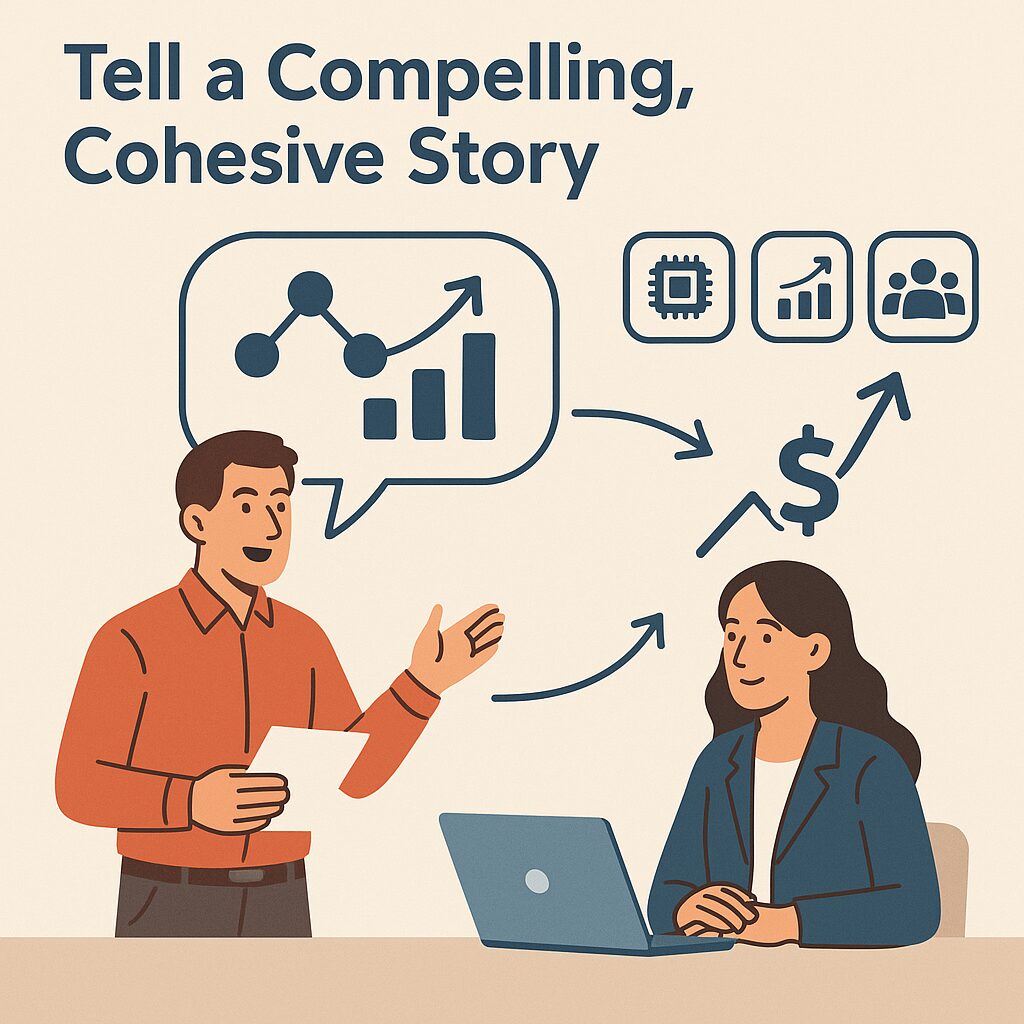As the AI sector matures and M&A activity accelerates, more founders are weighing the idea of selling their startups. For some, it’s a strategic opportunity to scale through integration with a larger platform. For others, it’s a well-timed exit or a pivot away from intensifying competitive or capital constraints. In 2025, the decision to sell is no longer just about strong technology or investor buzz. Buyers—including enterprise buyers—expect clarity, defensibility, and genuine strategic alignment, with a focus on scalable, future-proof solutions. Artificial intelligence is rapidly transforming multiple industries, and leading AI companies are shaping the future of enterprise technology by delivering innovative solutions that address industry-specific needs. More than ever, what matters is how AI is embedded in your business—how it drives measurable outcomes, operates at scale, and positions the company as a meaningful player in the evolving ecosystem.
This guide breaks the process into ten strategic principles, offering founders a framework to prepare, position, and execute a high-value exit in the AI space. The transformative potential of AI solutions to drive efficiency and value across industries is a key factor for success in today’s market.
1. Define the Real Reason You’re Selling
Every successful M&A process begins with clarity of purpose. Founders who understand and articulate the “why” behind the sale are better equipped to build internal alignment, manage investor expectations, and negotiate effectively. When preparing for a sale, it’s crucial to focus on the unique needs and priorities of potential clients (acquirers), ensuring your approach resonates with what they value most. Some see acquisition as a growth path, unlocking resources and reach they couldn’t achieve alone. Others are responding to market pressure, cash constraints, or personal burnout. There’s no wrong answer—but vague or misaligned motivations quickly become liabilities in negotiations. Before engaging buyers, ensure your co-founders, board, and key investors are on the same page about the outcome you’re targeting and why, focusing on the right outcome for both your company and its clients.
2. Understand the 2025 Buyer Mindset
Buyers today aren’t just chasing AI labels. They’re looking for companies with advanced AI capabilities and solutions tailored for enterprise needs, as well as proven value, durable technical moats, and operational readiness. Proprietary data, differentiated models, and scalable infrastructure matter—but so do customer traction, team quality, and a product that fits cleanly into existing ecosystems. Buyers also value teams with strong data science and machine learning expertise, including data scientists who can generate actionable insights from complex data. Acquirers want clarity: how your product works, why it’s hard to replicate, and what business outcomes it delivers. Understanding and communicating your company’s capabilities to potential buyers is crucial. An AI company that feels like a black box or an R&D lab won’t command the same interest—or valuation—as one with clearly defined use cases, happy customers, and a stable, well-documented tech stack.
3. Get Ahead of Due Diligence
Preparation is non-negotiable. Buyers will look under every hood: financial, legal, technical, and operational. That means having clean and accurate financial statements, a clear cap table, proper IP assignments, and complete documentation of everything from product architecture to customer metrics. It’s crucial to document your AI systems and the tools used in their development and deployment, ensuring transparency and compliance. Expect close inspection of how your models are trained, what data is used, and how scalable and secure your platform really is. Ensure buyers have access to the necessary data and insights during due diligence to support informed decision-making. Any ambiguity—around licensing, compliance, or performance—can delay or kill a deal. Treat due diligence not as a hurdle, but as a chance to demonstrate maturity and credibility.

4. Make Your Technology Legible—and Valuable
In AI deals, it’s not just the tech that counts—it’s how well it integrates, scales, and differentiates. Buyers want to know not only what your AI models do, but also about the development and engineering processes behind them, including the code, tools, and frameworks used to create and deploy AI solutions in production environments. A generative model that produces stunning demos is great; a model that reduces churn for a Fortune 500 client is better. It’s crucial to demonstrate how your AI models are deployed in production and which tools support ongoing development and optimization. The more transparent, modular, and documented your technology is, the easier it is to value—and the faster it can be integrated post-acquisition. The complexity isn’t the problem. Lack of clarity is.
5. Use Generative AI to Your Advantage—Without Overplaying It
Generative AI is attracting investor attention and driving deal flow. But buzz isn’t value. Founders need to ground their generative AI story in actual outcomes: what the technology enables, what bottlenecks it removes, and what economic impact it creates. Generative AI technology and related technologies can enhance business outcomes by automating complex tasks, enabling fully automated workflows that increase efficiency and reduce manual intervention. At the same time, they must be ready to address the new concerns generative AI raises—around IP, explainability, compliance, and risk. The companies commanding the best valuations are those that marry innovation with discipline: clear governance, responsible deployment, and practical applications that make buyers want to build, not just acquire.
6. Align with the Right Buyer, Not Just the Highest Bidder
Selling your company is more than a transaction—it’s a transition. The right buyer should bring alignment in strategy, culture, and vision. Are they looking to integrate your team? Keep your brand? Expand your platform? These questions matter as much as the price. Founders who focus only on headline numbers risk signing up for earn-outs they’ll never hit or joining organizations where their work is quickly sidelined. A good exit leaves room for continuity and momentum. It builds on what you’ve created, rather than absorbing it into something unrecognizable.
7. Be Strategic About the Sale Process
There’s a spectrum between inbound offers and fully run sale processes. Inbound interest can lead to fast exits—but often at lower valuations. A structured process, often led by an advisor, can unlock competition and surface better terms. Hybrid models are increasingly common: using an inbound offer as a catalyst to quietly explore other options.
Founders can strategically push for higher valuations by leveraging strong demand in the markets for AI companies, using market trends and competitive positioning to influence negotiations and achieve better outcomes.
Whichever path you take, the key is control. Don’t let a buyer define your value or your timeline. The more intentional you are, the more leverage you’ll retain.
8. Tell a Compelling, Cohesive Story
Narrative is a deal-maker. Founders who can clearly explain why their company exists, why now is the right time to acquire it, and why their solution is uniquely valuable tend to generate stronger interest and better offers. For example, we recently created a custom AI solution that delivered actionable insights for a client, resulting in measurable value and improved decision-making. Your story must tie together your technology, market, team, and momentum. Using real-world examples and insights can create a more compelling story for buyers. And it needs to connect with what the buyer is trying to achieve. Data and metrics should support the story, not drown it. You’re not just selling a product—you’re inviting someone to join or extend a mission.

9. Prepare for the Regulatory Spotlight
AI regulation is no longer a distant worry—it’s a present-day requirement. Buyers are increasingly cautious about legal exposure, especially in highly regulated sectors. That means you need to understand how your models perform under scrutiny, how your data is sourced and used, and how you comply with emerging frameworks like the EU AI Act. Being proactive about ethics, transparency, and governance isn’t just good practice—it’s now a competitive edge in M&A.
10. Engage and Align Investors Early
M&A is a team sport. Founders who keep investors in the loop, share updates, and invite input early tend to experience fewer delays and more productive negotiations. Disagreements about valuation, timing, or deal structure can stall or sabotage a sale, especially when investors feel blindsided. Transparency and alignment—not just legally, but emotionally—are essential to getting a deal over the line with confidence.
Final Word: Build with the Exit in Mind
Selling your AI company isn’t the end—it’s a transition into something bigger. The best exits happen when you’ve built a business that buyers can understand, trust, and scale. Trends in recent years have shaped the AI industry, especially following the 2021 investment rush, and planning for the next few years is crucial for a successful exit. Whether your strength is generative models, MLOps infrastructure, or vertical applications, the same principles apply: operate transparently, differentiate clearly, and align strategically. Plan ahead, and you’ll not only find the right buyer—you’ll shape the next chapter on your terms.
Why you need a Technology M&A Advisor for your AI company
Keeping track of AI valuations and transaction activity provides valuable insights into market trends and helps you time your exit strategy effectively. However, every company is unique, just as every founder’s journey is unique. Therefore, it’s crucial to seek guidance from experts in the M&A space, particularly M&A advisors who specialize in the technology sector and can understand your specific situation.
Technology M&A advisors possess deep knowledge of market dynamics, valuation methodologies, and the intricacies of the M&A process. While you focus on managing your business, advisors diligently ensure that every detail is addressed and advocate for the best possible deal on your behalf. Technology M&A advisors success is intertwined with yours, and their expertise can often significantly influence the final sale price.
About Aventis Advisors
Aventis Advisors is an M&A advisor focusing on technology and growth companies. We believe the world would be better off with fewer (but better quality) M&A deals done at the right moment for the company and its owners. Our goal is to provide honest, insight-driven advice, clearly laying out all the options for our clients – including the one to keep the status quo.
Get in touch with us to discuss how much your business could be worth and how to maximize the valuation.





